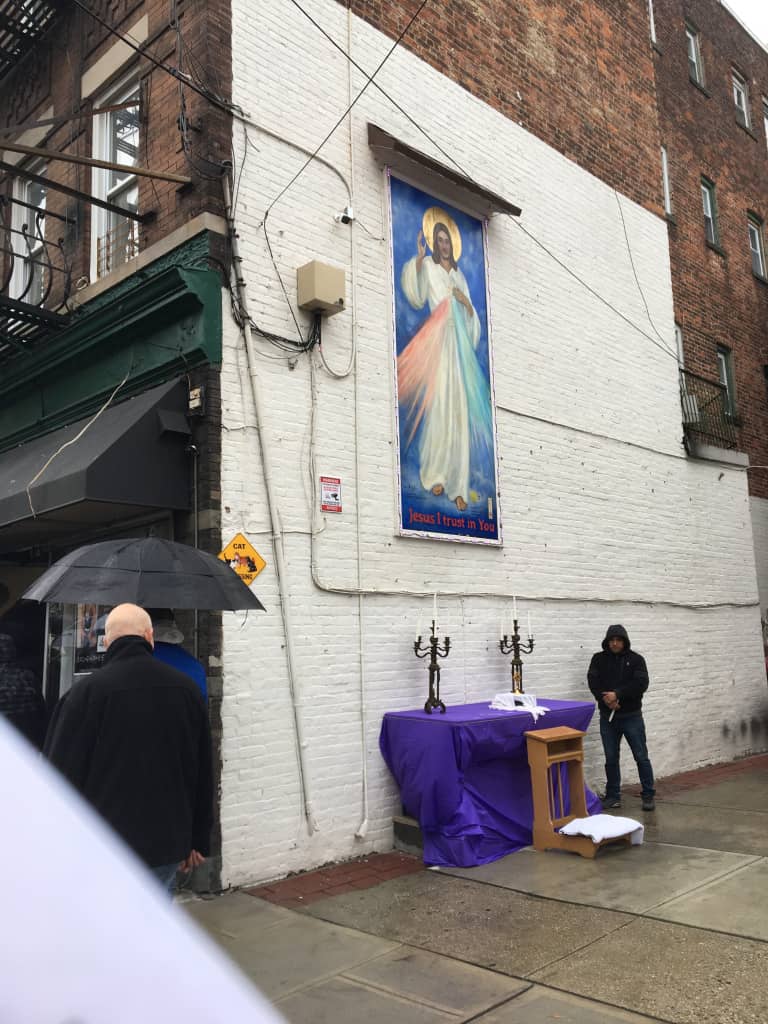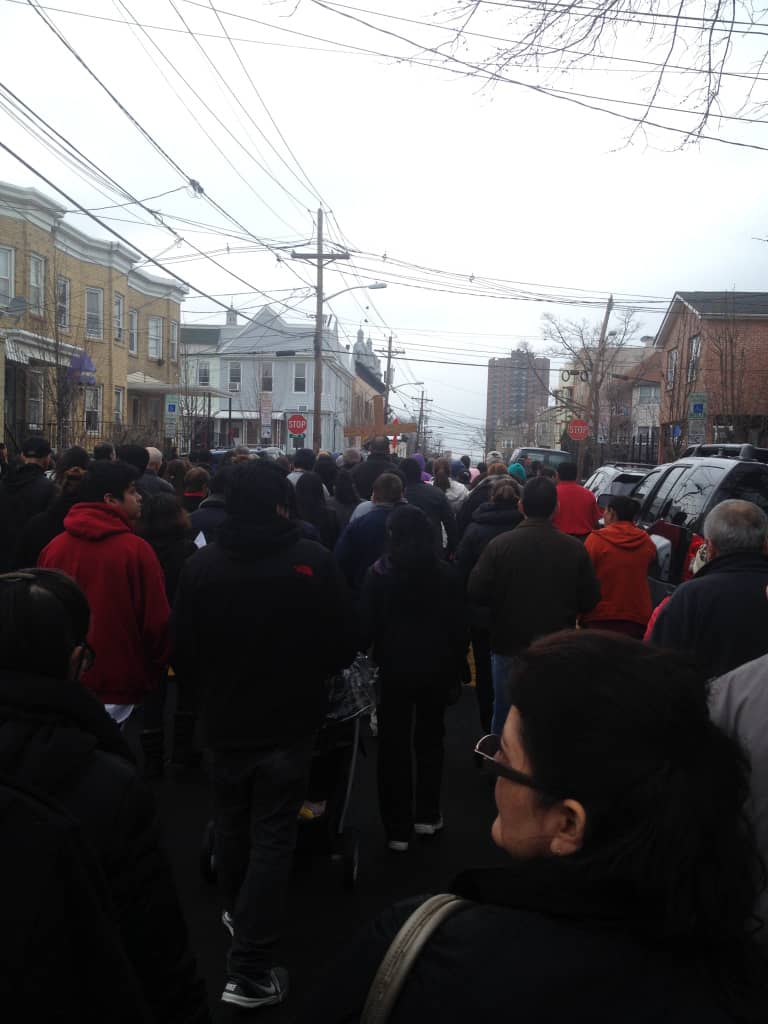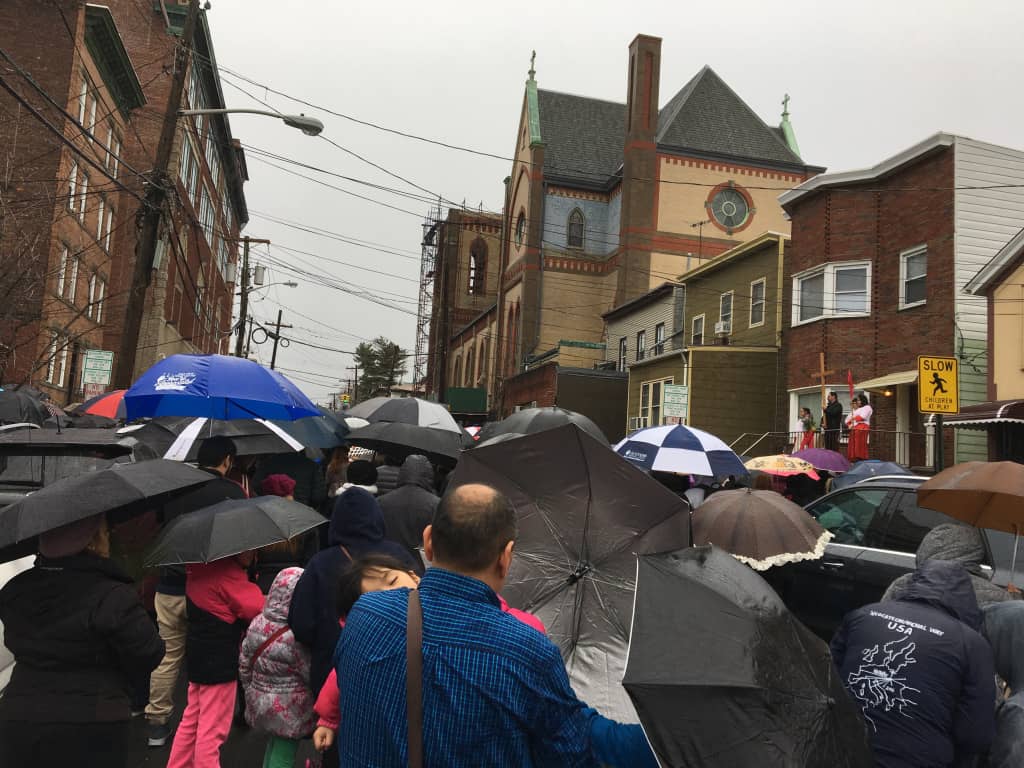I’d be remiss to forget Embroidery Plaza. Spanning the bridge that connects New York Avenue over the Lincoln Tunnel entrance, the “park” – a plaza full of oddities completely lacking in greenery – honors the city’s factory culture with a sewing machine display and evocative factory art. A poster and a photo of the original “embroidery capital” sign offer a brief history of what had happened here. Several sculptures, some by commissioner Lucio Fernandez – who directed the Union City documentary, helped break ground on nearly every new park, and whose mother worked in embroidery – add a living emotional connection to the history.

We can’t produce much embroidery anymore, but at least we can afford to make art about it. Laugh, but plenty of American industrial towns dream of that kind of luxury.
I was raised in Union City – and North Bergen, and Jersey City, and West New York – but when I close my eyes I see the metallic glimmer of baking pans piled higher than my head in the dingy hallway in Union City that led to my grandparents’ apartment. When my brain injures itself reading too many details on forced abortions in China or watching one too many an ISIS propaganda video – workplace hazard, I’m lucky to have it – it wraps itself in the 70s orange wallpaper of Abuela’s apartment and comfort-feeds on her arroz con pollo.
I plan on raising my children here not because it survived the industrial apocalypse or its school system has made national headlines (in a good way). I plan on raising them here because of Embroidery Plaza.

All too often, analyses of the consequences of prodigious global political decisions made by the world’s elite fall prey to the quicksand of economics. It’s human nature; how any policy affects a community’s ability to feed its children is and should be a top priority. What Union City’s story proves is money isn’t the only thing local communities have to lose when federal-level leaders decide their residents’ interests aren’t as important as those of their peers running other countries or international organizations. Cultural identity, shared history, and social balance are in jeopardy too, and just as deserving of having a seat at the table.
Who we are is God’s greatest gift – one that no person can take away from you, but a strong enough power can take from your children.
The erasure of longstanding tradition and local identity feels like an especial affront to me coming from a Cuban exile family who lost it all. When Castro barreled into Havana, Batista didn’t think stopping his transformative cultural experiment was worth fighting for. The sugar cane growers and rum barons didn’t, either. The Americans didn’t bother with Cuba when it was free for the taking in the 1900s; they sure wanted nothing to do with it now. Thanks to this coalition of cowardice, Castro destroyed the local identities of every major city, small town, and rural village of Cuba, building on the rubble the soot-covered image of the New Soviet Man.
I can’t go to my parents’ hometown and, even if I did, I’d mostly find ruins. I don’t have any cousins I’m close to. I inherited no roots.
It feels trite to complain about when the rest of your family had to endure extreme psychological torture, forced labor, and the humiliation of exile – having to tell your new neighbors that your country doesn’t want you anymore. But I want my daughter to have what I didn’t. I want her not just to have access to the streets I grew up in, but to grow up in them, too. I want her to walk to Embroidery Park or visit the Union City Historical Museum and learn about those who walked those streets before us. I want her to write her own story and aspire to having a place in that museum one day. I want her to have deep roots.
A concerted effort by a ballooning local government is the only way Union City had to preserve its legacy. It’s a political model I wish we had the luxury to avoid, but we had no choice. A much bigger government made that decision for us.
Special thanks to my husband, Glenn Davis, for his tremendous support, both logistical and emotional, in composing this project.
Thank you to Lucio Fernandez for providing source material and direction.
Thank you to Union City for giving my clan a home.

COMMENTS



